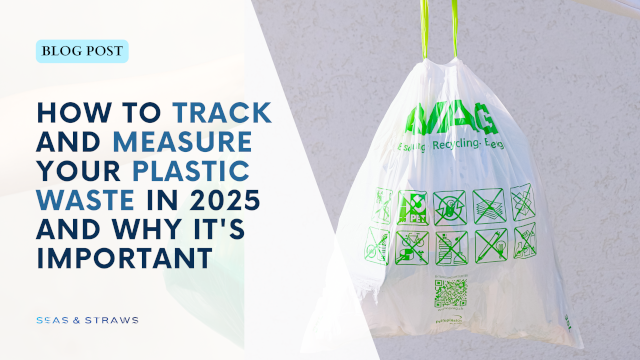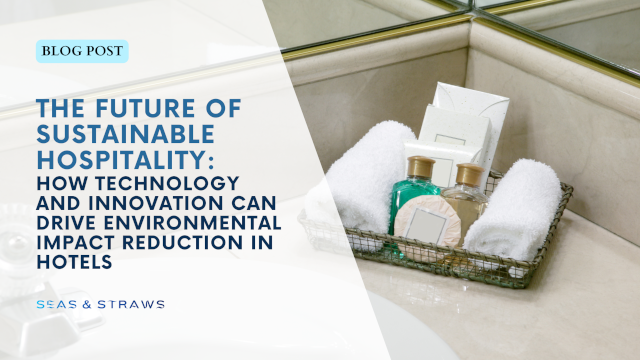- Home
- Hotels & Plastics
- Hotels And Plastics: Going Plastic-Free
- Sustainable Waste Management in Hotels
Taking the Lead: A Guide to Sustainable Waste Management in Hotels
Imagine a world where hotels not only provide exceptional guest experiences but also prioritize sustainability and environmental stewardship. In an era where conscious travel choices are gaining momentum, do you think it’s high time for the hospitality industry to step up and redefine the way they handle waste?
Whether you're a hotel owner or employee, a passionate eco-traveler, or simply curious about sustainable practices, this blog post will guide you through the world of sustainable waste management in hotels and transform the way you think about it.
What is Sustainable Waste Management in hotels?
Sustainable waste management refers to the proper handling, reduction, and disposal of waste generated within hotels and resorts. Various types of waste, including food waste, paper and cardboard, plastics, glass, metals, hazardous materials, and energy consumption, are included in this process.
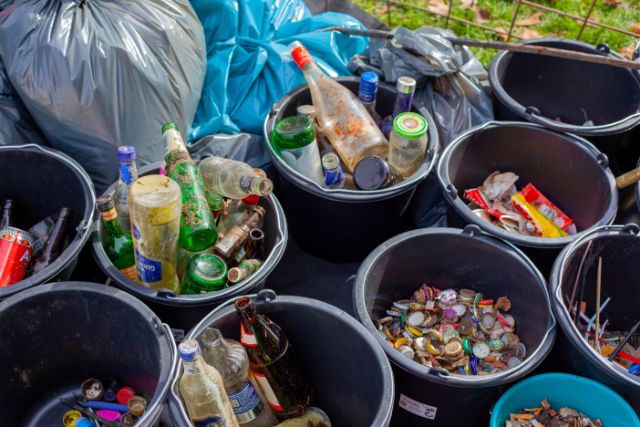 Proper waste management can dramatically reduce the amount of waste that ends up in landfill.
Proper waste management can dramatically reduce the amount of waste that ends up in landfill.Why is SUSTAINABLE WASTE MANAGEMENT Important?
Did you know that hotels worldwide produce an average of 289,700 tonnes of waste each year, including 79,000 tonnes of food waste? That’s a significant amount of waste, and if not managed properly, it can cause pollution, fill up landfills, and damage ecosystems.
Effective waste management in hotels is absolutely crucial as it not only benefits the environment, but also the people and the hotel itself.
To the environment: It minimizes environmental impact, reduces landfill waste, promotes recycling and composting, and conserves natural resources.
To the people: It helps maintain public health, creates a hygienic environment, and contributes to their overall well-being and quality of life of local communities.
To the hotel: It reduces waste disposal costs, improves operational efficiency, enhances the hotel's reputation as a sustainable establishment, attracts eco-conscious guests, and fosters a positive work environment for staff, promoting a culture of environmental responsibility.
How to Achieve This?
Beyond offering a luxurious escape, adopting effective waste management practices is essential for the hospitality industry.
Here are some of the best practices you can implement in your hotel:
1. Conduct Waste Audits
As the management guru Peter Drucker famously said, “If you can't measure it, you can't manage it.” So, begin by identifying what types and how much waste you're producing in your hotel. This audit will help you find ways to reduce waste, improve collection schedules, negotiate better contracts, and lower disposal fees.
2. Develop a waste management plan
Create a detailed plan that outlines your hotel's waste management goals, strategies, and timelines. Make sure it aligns with local waste management regulations and best practices.
3. Promote recycling
To encourage recycling, it's a good idea to have clearly marked recycling bins in different spots throughout the hotel. Teach both guests and staff which items can be recycled and how to sort them correctly.
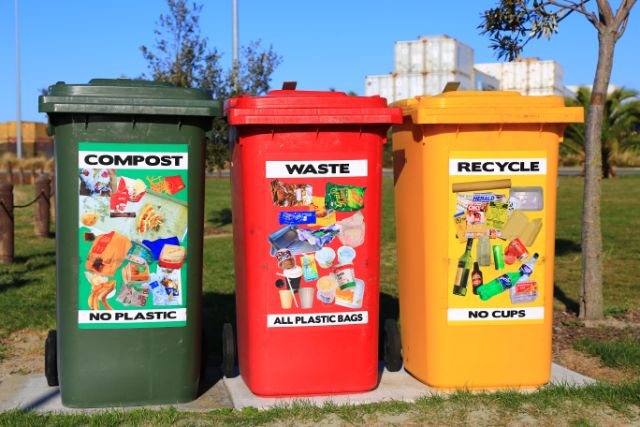 Labeled garbage bins encourage proper waste segregation.
Labeled garbage bins encourage proper waste segregation.4. Implement composting
Establish a composting program to divert organic waste from landfills, such as food scraps and yard trimmings.This way, you can avoid sending them to landfills where they won't decompose for hundreds of years and transform them into nutrient-rich soil.
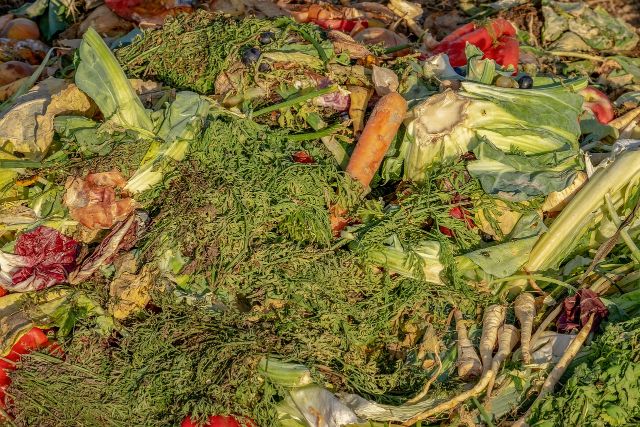 Compost your kitchen waste and use it as plant fertilizer.
Compost your kitchen waste and use it as plant fertilizer.5. Eliminate Plastic & Packaging Waste
Try cutting down on the amount of single-use plastics you use in your hotel amenities such as plastic water bottles, disposable cutlery, and individually wrapped amenities. Whenever you can, opt for bulk purchases. And if you do need to use packaging, go for eco-friendly options. Every little bit helps!
 Use wooden plates & cutlery when reusable materials are not an option.
Use wooden plates & cutlery when reusable materials are not an option.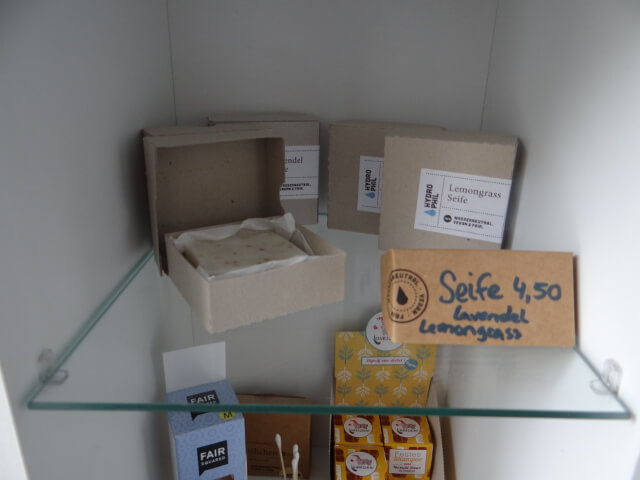 Plastic-free soap bars for sale in a hotel I've visited. Photo: seasandstraws.com
Plastic-free soap bars for sale in a hotel I've visited. Photo: seasandstraws.com6. Control Energy Use
To save energy and reduce utility costs, try using energy-efficient lighting, optimizing HVAC systems, and using smart technology to control energy usage. Conduct regular energy audits to find areas where energy is being wasted.
7. Manage Usage of Water
Install low-flow fixtures, promote guest awareness of water conservation practices, and utilize efficient laundry and dishwashing systems. Conduct regular water audits and explore opportunities for water recycling and reuse within the hotel. You can consider setting up a rainwater harvesting system to collect and reuse rainwater.
8. Segregate Hazardous Waste
Segregate hazardous waste from non-hazardous waste, such as batteries, light bulbs, and cleaning chemicals to prevent contamination and ensure proper treatment. Keep a record of these materials and train your staff on how to handle and dispose of them correctly.
 Batteries are hazardous goods. A proper segregation ensures that they do not end up in the environment.
Batteries are hazardous goods. A proper segregation ensures that they do not end up in the environment.9. Educate Staff
Develop a training program that covers everything about waste management and sustainability. This will help build a waste-conscious culture in your hotel and ensure successful implementation of good practices.
10. Engage Guests
Place informational cards or signage in guest rooms to let the guests know about your hotel's waste management practices and to encourage them to participate. Highlight the environmental impact of their involvement and how they can make a difference during their stay.
11. Collaborate and Partner with Eco-conscious Suppliers
When choosing suppliers, it's important to think about sustainability. Look for suppliers who share your hotel's goals for managing waste and being environmentally friendly. Collaborate with local waste management facilities, recycling centers, and charitable organizations to make sure you're doing everything you can to manage waste in the best way possible.
Conclusion
Proper hotel waste management isn’t just about reducing waste, installing recycling bins or eliminating single-use plastic packaging. It is actually doing more in your hotel without harming the environment. Embracing green hospitality practices not only benefits the planet but also enhances the hotel's reputation as a responsible establishment.
Resources
WWF: Stop the Flood of Plastic: Effective measures to avoid single-use
plastics and packaging in hotels
How can hotel waste management be made more efficient?
You can be featured on my website!
I'd be happy to feature you on my website. If your venue is sustainable or plastic-free and you want me to write about it or to interview you, send me a message on jana@seasandstraws.com! I look forward to reading from you.
Want to make your hotel or guesthouse sustainable, too, but not sure where to start?
If you need help or have any questions about implementing sustainable travel practices in your hotels or guesthouse, you can contact me at jana@seasandstraws.com, and I'll happily provide any assistance you need.
Let's team up to create an exceptional and responsible travel experience for your guests, all while making a positive impact on our planet. Don't wait any longer - get in touch with me today!
In the meantime, check out my comprehensive blog post on The Plastic-Free Hotel Revolution, here!






